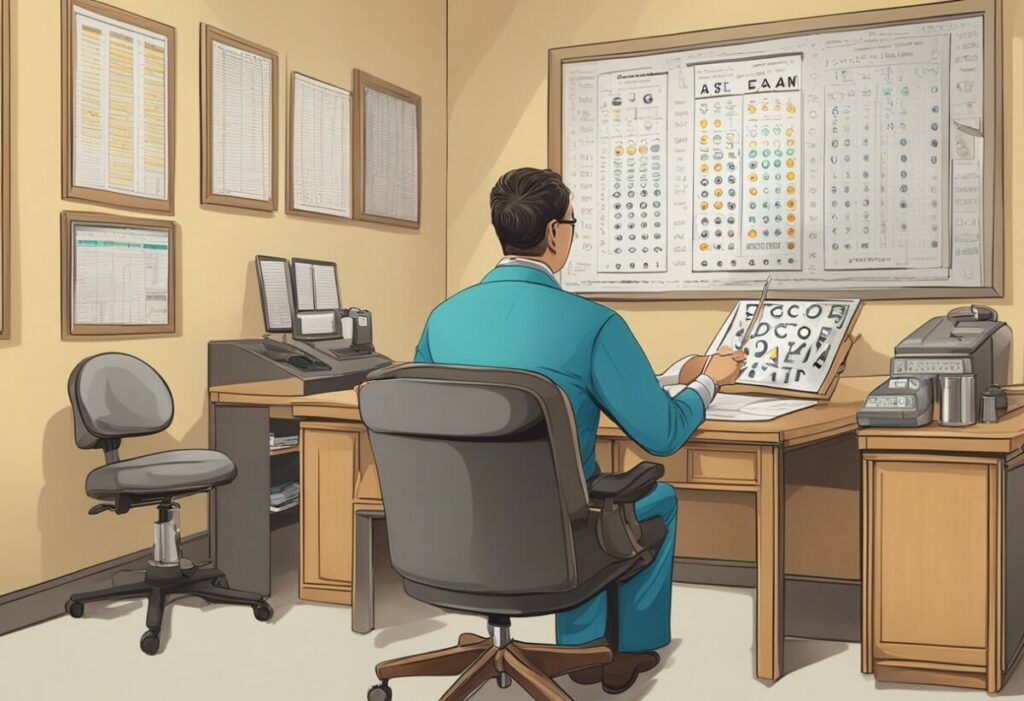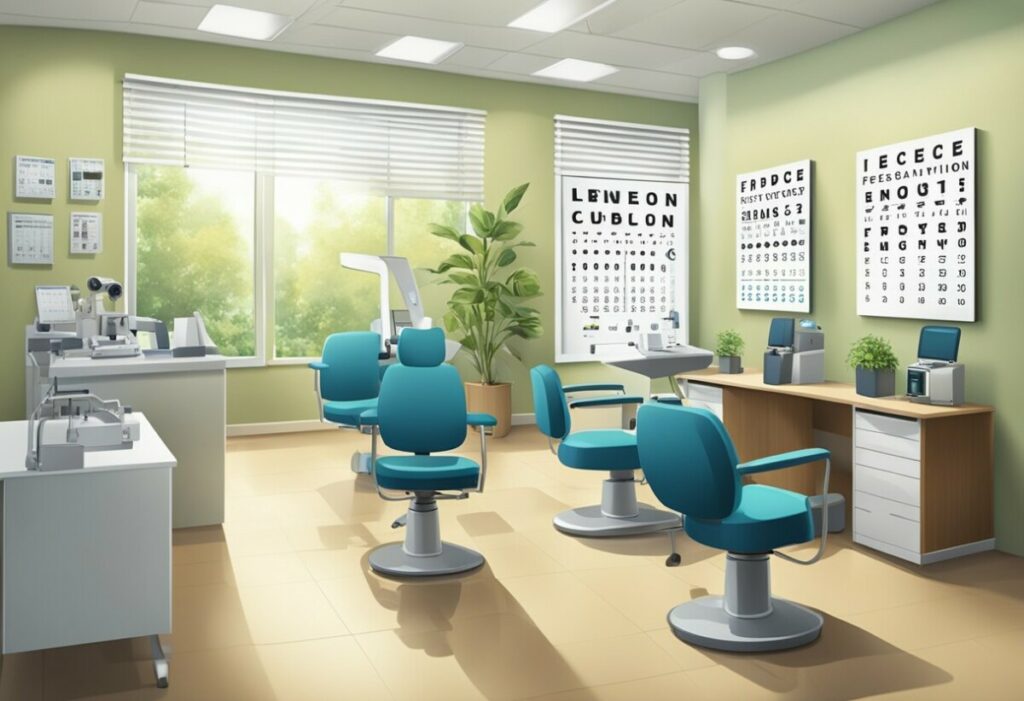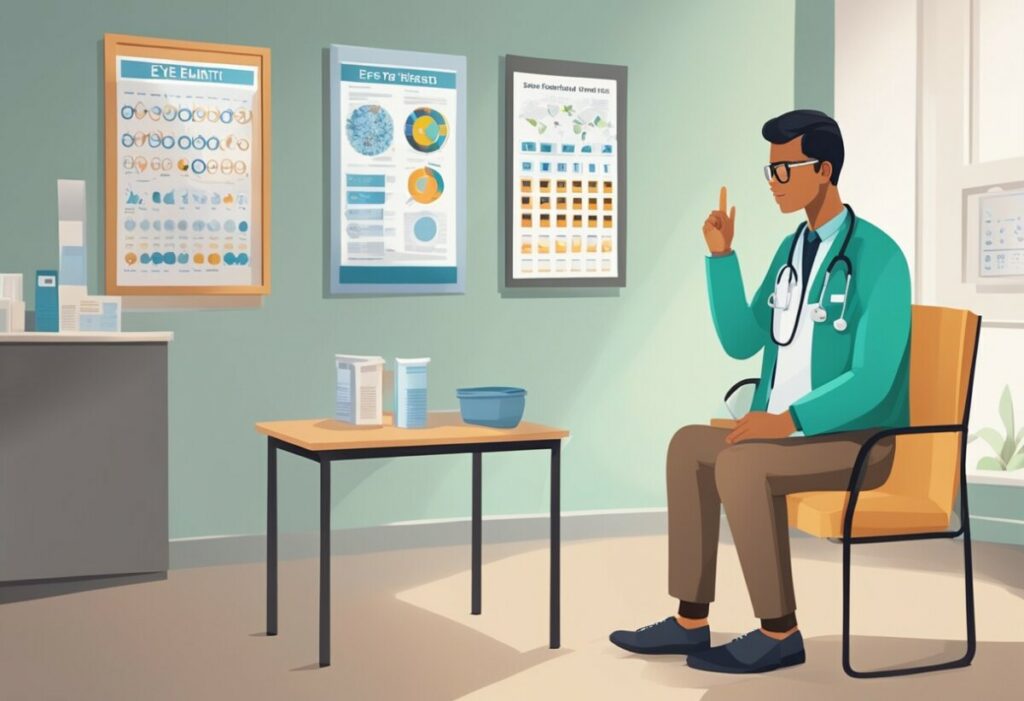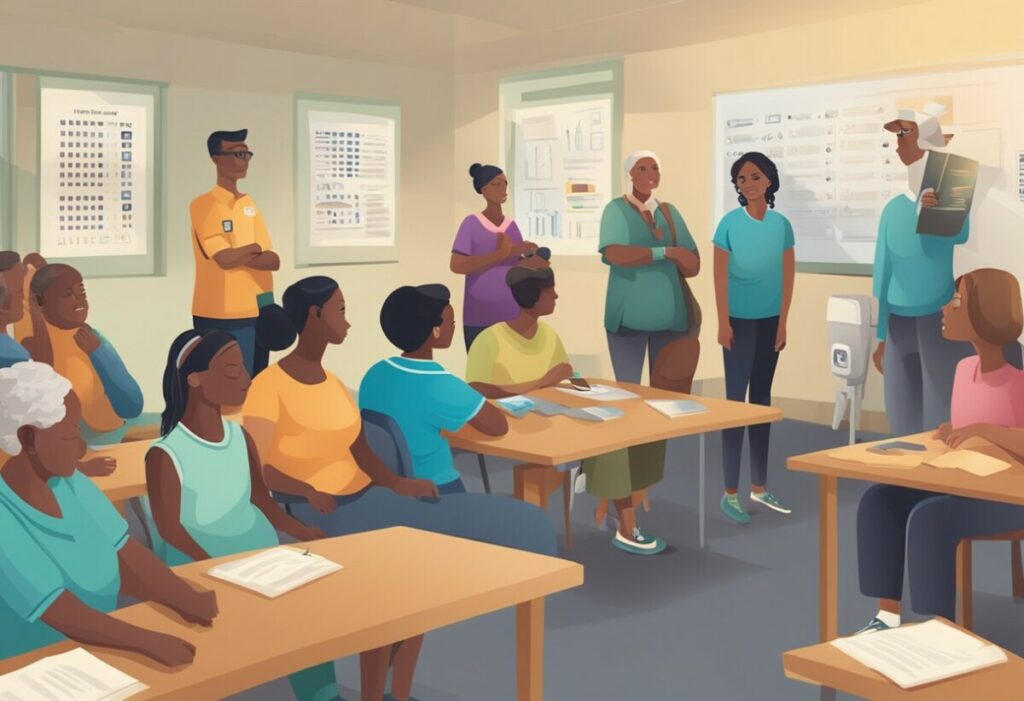The Importance of Regular Eye Exams: Vision Care for the Legally Blind

Understanding Legal Blindness and Its Implications – A Guide to Vision Care for the Legally Blind
Being legally blind means that even with glasses or contact lenses, a person’s visual acuity is 20/200 or worse in the better-seeing eye, or their field of vision is 20 degrees or less. This legal definition varies by country but has significant implications, particularly in the United States where it can qualify individuals for certain benefits and services.
Visual Acuity and Field of Vision:
- Legal blindness: 20/200 or worse, or
- Visual field: 20 degrees or less.
Implications for Daily Life:
- Mobility: Challenges in navigation.
- Employment: Need for workplace accommodations.
- Lifestyle: Adjustments to living spaces for safety.
At New England Low Vision and Blindness, we understand the unique needs of the legally blind community. We remain devoted to enhancing independence through our leading-edge assistive technology and training services, helping to overcome the challenges posed by visual impairments.
Assistive Technology Solutions:
- Reading: Electronic magnifiers and text-to-speech devices.
- Mobility: Orientation and mobility aids.
- Communication: Accessible computers and smartphones.
Regular eye exams are crucial for individuals with legal blindness to manage their eye health and maximize their remaining vision. These exams can help detect vision changes, provide an opportunity to learn about helpful resources and connect individuals with necessary assistive technologies and community services. Our role is to bring hope and practical support to make daily tasks more accessible and to maintain a high quality of life.
Benefits of Regular Eye Examinations
Regular eye examinations are critical for maintaining optimal eye health, especially for members of the legally blind community. Through these exams, you can ensure eye conditions are identified promptly and that the overall health of the eyes is closely monitored.
Early Detection of Eye Conditions
Early detection is indispensable as it allows for prompt intervention that can help preserve vision and slow down the progression of eye conditions. During an exam, optometrists can detect signs of glaucoma, cataracts, and other eye-related diseases that may not yet have manifested noticeable symptoms. For individuals who are legally blind, identifying these conditions early can be vital in maintaining their current level of vision and improving their quality of life.
Monitoring Eye Health Progression
By scheduling regular eye exams, you also facilitate the ongoing monitoring of any changes in vision or eye health. For our community members, it’s particularly beneficial to observe the progression of their eye condition to adjust their assistive technologies accordingly. Our role at New England Low Vision and Blindness involves providing and tailoring these leading-edge assistive technology solutions to each individual’s needs, ensuring they continue to engage with the world around them effectively.
Eye Exam Procedures for the Legally Blind
For individuals who are legally blind, specialized eye exam procedures are tailored to assess and support their unique visual needs. These exams focus on optimizing the remaining vision and determining the most effective aids and technologies for daily living.
Adaptations in Standard Eye Tests
Standard eye exams typically involve reading eye charts, but for those who are legally blind, we adapt these tests to better assess their vision levels. High-contrast materials and tactile options are used to measure visual acuity and field. We also conduct light sensitivity and contrast sensitivity assessments, which are crucial for creating personalized low vision strategies.
Assistive Technologies in Eye Care
We employ a variety of assistive technologies to enhance the eye care experience. Tools such as electronic magnifiers and text-to-speech devices help in conducting thorough exams while maximizing the patient’s comfort and understanding. Additionally, utilizing leading-edge software that simulates different levels of vision loss allows us to create a more empathetic and effective exam process.
Navigating Healthcare Services
When it comes to eye care, navigating healthcare services effectively is crucial, especially for the legally blind community. Understanding how to find qualified eye care professionals and manage the costs associated with eye care can significantly impact the quality of support received.
Finding Qualified Eye Care Professionals
Finding qualified eye care professionals who are knowledgeable about visual impairments is fundamental for those with legal blindness. We recommend seeking professionals who have experience in low vision therapy and are familiar with a wide range of visual aids.
These specialists should provide comprehensive exams that go beyond standard vision tests, catering specifically to your residual vision and lifestyle needs.
Organizations like the Centers for Disease Control and Prevention offer resources that can aid in locating such healthcare providers.
Insurance and Eye Care Costs
Understanding your insurance coverage and out-of-pocket costs for eye care is imperative. Regular eye exams and assistive technology fittings might or might not be covered depending on your plan.
We encourage reviewing your policy details or discussing them with your insurance provider to clarify what services are included. For those without insurance, or for services not covered, there are organizations, such as Prevent Blindness, that can offer financial assistance or provide information on programs designed to support individuals who are visually impaired.
In navigating these services, New England Low Vision and Blindness stands as a partner dedicated to supporting you through our resources and assistive technology training. Our goal is to empower you with the necessary tools and knowledge to enhance your quality of life.
Community and Support Resources
As leaders in providing assistive technology and training for the visually impaired, we understand the value of community and resources that can support individuals through their journey. Connecting with peer support and accessing specialized educational programs are crucial for empowerment and independence.
Peer Support and Advocacy Groups
Peer support offers both emotional and practical benefits. Talking to others who have similar experiences can help in handling the day-to-day challenges of visual impairment. We encourage engaging with groups such as the American Foundation for the Blind for advocacy and camaraderie.
Educational Programs and Services
Education and continued learning are fundamental for maintaining an active and fulfilled life. We promote services that provide tailored learning opportunities, like Hadley, which creates personalized programs to help individuals thrive in all areas of life. Additionally, resources like the CDC Guide for Vision Health offer critical information on navigating vision health.
Free Low Vision Guide
Be sure to download our free Low Vision Guide to help you or a loved one adapt to a world of vision loss https://nelowvision.com/macular-degeneration-help-resources/







